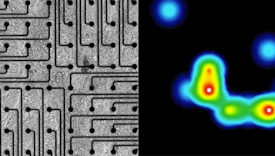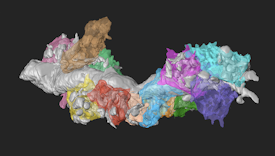
Reza Kalhor is an assistant professor at Johns Hopkins University. He received his Ph.D. in molecular and computational biology from the University of Southern California. Training with Lin Chen, he used high-throughput sequencing to study the complex 3-D genomic structure and developed the first generation of Hi-C technologies that chart physical interactions between chromatin regions on a genome-wide scale. He carried out his postdoctoral work in George Church’s group at Harvard Medical School and the Wyss Institute for Biologically Inspired Engineering at Harvard University, where he developed in vivo barcoding strategies to record lineages during mouse development. He also developed methods for enzymatic DNA synthesis and digital information storage in DNA, helped develop in situ sequencing technologies and studied whole-brain mapping strategies.
Kalhor now plans to put these skill sets to use in his own laboratory by addressing the challenges associated with high-resolution developmental mapping of neurons. By building upon the previously developed mouse barcoding and in situ sequencing technologies, Kalhor plans to create a mouse model for in vivo barcoding of the brain and to integrate this model with cutting-edge single-cell sequencing technologies to obtain whole-brain lineage maps in neurotypical and autism mouse models.


